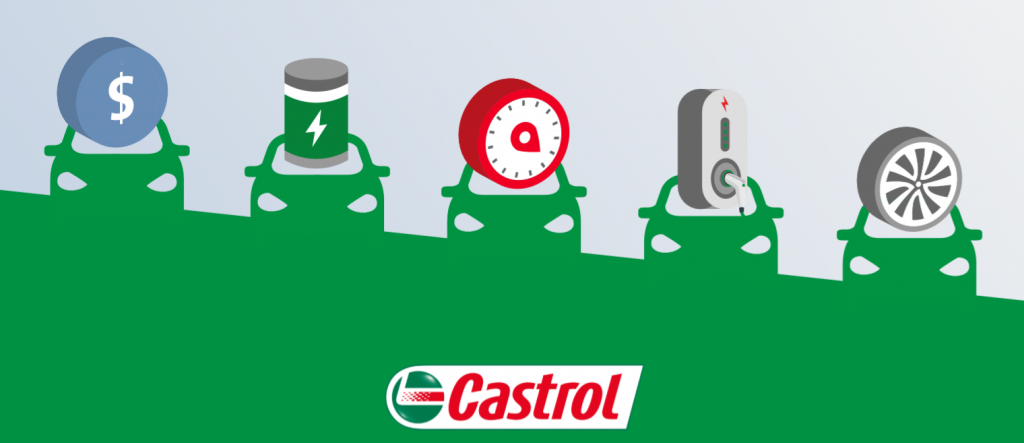A research study from Castrol has highlighted some of the roadblocks that discourage drivers from buying battery electric vehicles. The study, called Accelerating the EVolution, reveals that UK drivers want lower prices, increased range and reduced charging times in order to fully embrace the new technology.
These three factors are considered the tipping points that have the power to completely change the perception of EVs to the public, according to Omer Dormen, VP, Castrol Europe.
“As an industry we must focus on the factors that matter most to consumers,” he said. “The three tipping points revealed in Accelerating the EVolution provide a clear roadmap for the automotive industry to help accelerate mainstream adoption of EVs.”
The research has shown that the price tag is usually one of the main deterrents from buying electric. UK drivers would be more willing to switch to an EV if the average price would drop to £24,000 (or $30,000). This price point is significantly lower than the global average of £29,000 (or $36,000), below which purchasers would be willing to go electric.
The second tipping point that is hovering in buyers’ minds is the charging time of EVs. They demand waiting time to be shortened in order to seriously consider switching from internal combustion engines. UK consumers want an average charge time of 30 minutes as almost seven in 10 (69%) of those questioned believe EVs will only dominate on the roads once they can charge in a similar time as it takes to refuel an ICE vehicle.
Lastly, consumers have range anxiety as they expect a range of 282 miles (453km) from a single charge. However, half of consumers don’t drive the full range on one charge as they mainly use their car for short journeys or commuting, and a number of EVs already offer this range or greater anyway.
These interesting points, but they don’t paint a totally gloomy picture. Although EVs might be considered still too expensive, the price of the lithium-ion battery keeps dropping and it is expected to breach the US$100/KWh threshold by 2024, which means that soon electric vehicles will be more affordable than ICE cars.
Range anxiety will also soon be an issue of the past as according to BloombergNEF, the average range of EVs was around 183 miles in 2019 but will rise to around 235 miles for this year’s models. Also, Tesla offers a Model S with over 400 miles of range, Lucid promises that its Air will go for more than 500, and recently the Hyundai Kona has broken the 600 miles wall on a single charge.
Lastly, companies such as IONITY is working to create a rapid charging infrastructure that will cut waiting times and allow EVs to charge quickly. Tesla’s superchargers already offer a large networking of rapid charging facilities.
If we are looking from the right perspective at these tipping points, we are very close to an all-electric revolution. All these ‘issues’ are evolving every day and soon they will be solved The only real problem left for buyers will be to choose the right EV model.
